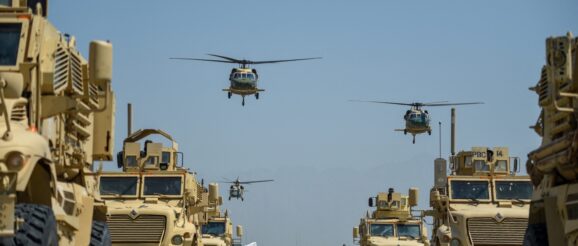Targeted by the travel ban, many Afghans await special immigrant visas

President Trump enacted a travel ban on citizens from a dozen countries Wednesday, including Afghanistan, where U.S. troops were stationed for nearly two decades.
Even though the president’s travel ban applies to Afghanistan, it does include an exception.
Afghans who served with the U.S. during the war can still pursue what’s known as a Special Immigrant Visa. Since the chaotic military withdrawal of U.S. troops in August of 2021, around 200,000 Afghans have resettled in the U.S., many under that visa program.
In addition, more than 200,000 Afghans remain outside the U.S. while awaiting various stages of the application process, including many who worked with the Americans.


These figures are from U.S. officials and private groups assisting Afghans who want to move to the U.S., including AfghanEvac, an advocacy group which maintains statistics on the number of Afghan nationals attempting resettlement.
The president’s proclamation also carves out exceptions for individuals already in the U.S. seeking asylum. While it does not address refugee resettlement, the U.S. has paused almost all refugee programs under another executive order.
Many Afghans seeking SIVs and refugee status say they fear for their safety under Taliban rule in the country.
The administration also cited visa overstay statistics in its reasoning for Afghanistan’s inclusion.
The release further explained that Noem “determined that permitting Afghan nationals to remain temporarily in the United States is contrary to the national interest of the United States.”
The head of AfghanEvac, Navy veteran Shawn VanDiver, called the travel ban a “betrayal.”
“This ban does nothing to protect Americans. It punishes Afghan allies, family members, students, professionals, and humanitarian parolees—many of whom were already promised a pathway to safety,” he said in a statement.
